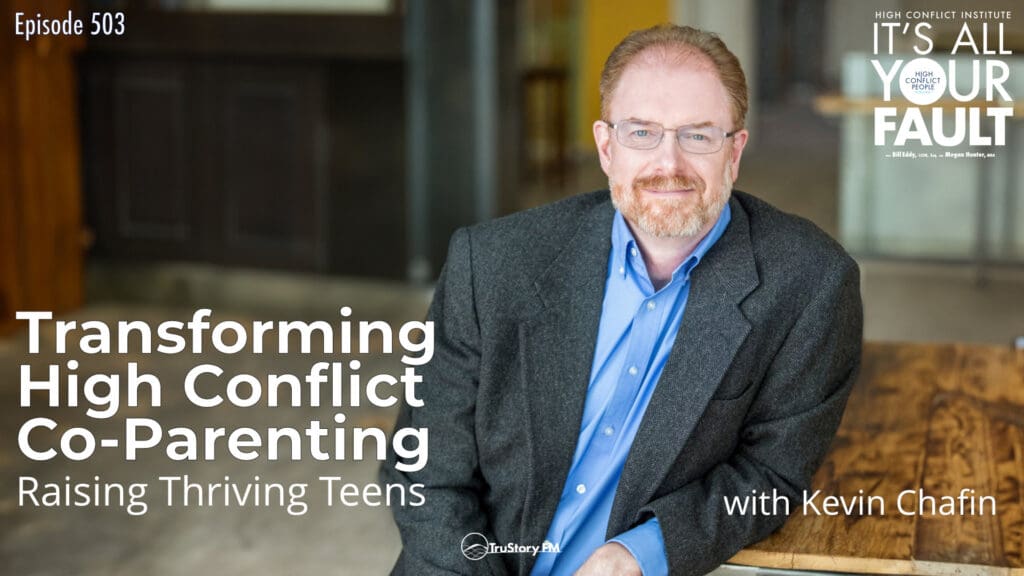In this insightful episode of “It’s All Your Fault”, Megan is joined by special guest Kevin Chafin, a licensed professional counselor from Kansas City, Missouri. With Bill away for the month, Megan and Kevin dive deep into the complexities of co-parenting, particularly when it comes to dealing with teenagers in high conflict situations. Together, they explore effective strategies for managing these challenging dynamics and provide valuable insights for parents navigating these difficult waters.
Understanding the Impact of Divorce on Teens
Megan and Kevin discuss how divorce can have a profound impact on teenagers, especially when it comes to their sense of security and emotional well-being. They emphasize the importance of parents providing a stable and supportive environment during this transformative period, even as the family system shifts from one household to two. Kevin shares his expertise on the developmental challenges that teens face during puberty and how these can be exacerbated by the stress of a family breakup.
Avoiding the Pitfalls of Parentification
One of the key themes explored in this episode is the concept of parentification – when children, particularly teens, are put into the role of a parent. Megan and Kevin delve into how this can happen when parents become emotionally needy and look to their children for support and validation. They discuss the importance of maintaining healthy boundaries and not burdening teens with adult responsibilities or expecting them to choose sides in parental conflicts.
Strategies for Effective Co-Parenting Communication
Megan and Kevin also share practical tips for improving communication between co-parents, drawing on their extensive experience working with families in high conflict situations. They highlight the value of using BIFF responses (Brief, Informative, Friendly, Firm) to keep interactions focused and productive, even in the face of hostility or misinformation. Kevin also shares insights from his work as a mediator and counselor, emphasizing the importance of staying child-centered and avoiding loyalty demands.
Questions we answer in this episode:
- How does divorce impact teenagers differently than younger children?
- What are the signs that a child is being parentified?
- How can co-parents improve communication and reduce conflict?
- What strategies can parents use to support their teens during a family breakup?
- How can parents avoid putting their teens in the middle of adult conflicts?
Key Takeaways:
- Divorce can be especially challenging for teens due to the developmental changes of puberty.
- Parentification occurs when children are put into adult roles and expected to emotionally support their parents.
- Using BIFF responses can help keep co-parenting communication focused and productive.
- Parents should prioritize their child’s emotional well-being and avoid loyalty demands.
- Seeking support from counselors or mediators can be valuable for high conflict situations.
This episode offers a wealth of knowledge and practical strategies for parents navigating the challenges of co-parenting and raising teens in high conflict situations. With their combined expertise, Megan and Kevin provide a compassionate and informative perspective on these complex issues, offering hope and guidance for families struggling to find their way forward.
Links & Other Notes
- AUTHOR WEBSITE
- BOOKS
- VIDEO
- OUR WEBSITE: https://www.highconflictinstitute.com/
- Submit a Question for Bill and Megan
- All of our books can be found in our online store or anywhere books are sold, including as e-books.
- You can also find these show notes at our site as well.
Note: We are not diagnosing anyone in our discussions, merely discussing patterns of behavior.











